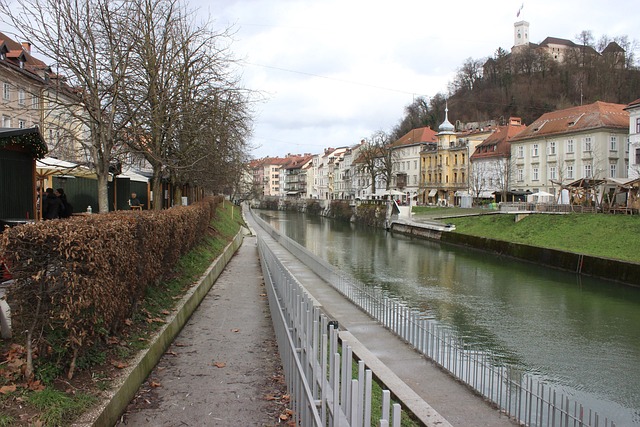Karachi residents use the Air Quality Index (AQI) to track harmful air pollution levels, with lower AQI values indicating better air quality. The Defence View Society (DVS) leverages real-time data from advanced sensors to monitor and improve Karachi's air quality, identifying pollution sources and hotspots. The city tackles severe air pollution through multi-faceted strategies including stricter vehicle emission standards, green initiatives like tree planting, public education campaigns, and exploring cleaner energy alternatives like solar and wind power. These collaborative efforts aim to create a healthier future for Karachi.
Karachi, Pakistan’s vibrant metropolis, faces significant air pollution challenges. To tackle this urgent issue, the Defence View Society plays a pivotal role in monitoring and enhancing air quality through meticulous data collection and public awareness campaigns. This article offers a comprehensive guide for residents, breaking down the intricate Air Quality Index (AQI). We explore effective strategies and initiatives aimed at improving Karachi’s air quality, providing insights into a healthier future for the city’s inhabitants.
- Understanding the Air Quality Index: A Basic Guide for Karachi Residents
- The Role of the Defence View Society in Monitoring and Improving Air Quality in Karachi
- Strategies and Initiatives to Combat Air Pollution: A Comprehensive Overview for a Healthier Karachi
Understanding the Air Quality Index: A Basic Guide for Karachi Residents

The Air Quality Index (AQI) is a crucial tool for understanding and communicating air pollution levels, offering Karachi residents a clear view into their city’s environmental health. It provides a standardized measure of air quality, making it easy for everyone to interpret and take appropriate actions. The AQI ranges from 0 to 500, with lower values indicating better air quality. In Karachi, the index is regularly updated and shared by various environmental agencies to keep citizens informed.
For Karachi’s residents, staying informed about air quality is essential, especially considering the city’s unique challenges related to traffic congestion and industrial activities. Understanding the AQI allows folks to take proactive measures on days when pollution levels are high, such as wearing masks or avoiding outdoor activities. By being aware of the index, residents can contribute to collective efforts to improve Karachi’s air quality and ensure a healthier future for all.
The Role of the Defence View Society in Monitoring and Improving Air Quality in Karachi

The Defence View Society (DVS) plays a pivotal role in monitoring and enhancing air quality in Karachi, Pakistan’s largest metropolis. As an environmental initiative, DVS has been at the forefront of collecting and analyzing real-time data on air pollutants across various areas of the city. Their efforts are crucial in providing actionable insights to both local authorities and residents. By utilizing advanced technologies and sensors, they offer a comprehensive view of Karachi’s air quality, identifying hotspots and sources of pollution.
Through their dedicated network, DVS regularly shares these findings, raising awareness among citizens. This proactive approach empowers individuals to make informed decisions to contribute to better air quality. Moreover, the society collaborates with government agencies and local communities to implement sustainable practices and policies, making a tangible impact on Karachi’s overall environmental health.
Strategies and Initiatives to Combat Air Pollution: A Comprehensive Overview for a Healthier Karachi

Karachi, as one of Pakistan’s most populous cities, faces significant air pollution challenges. To combat this issue, various strategies and initiatives have been undertaken to improve air quality in Karachi. One key approach is the implementation of stricter emission standards for vehicles, including regular vehicle fitness checks and the promotion of electric and hybrid cars. Additionally, the city has seen an increase in green spaces and tree-planting drives aimed at absorbing pollutants and enhancing natural ventilation.
Government agencies, in collaboration with non-governmental organizations (NGOs), have been actively promoting public awareness campaigns to educate citizens about the sources and impacts of air pollution. These campaigns encourage responsible practices like reducing industrial emissions, proper waste management, and minimizing the use of single-use plastics. Furthermore, initiatives focusing on cleaner energy sources, such as solar and wind power, are being explored and implemented to decrease reliance on fossil fuels, which significantly contribute to air quality degradation in Karachi.
Karachi, as a vibrant metropolis, faces unique challenges regarding air quality. However, with proactive measures taken by organizations like the Defence View Society, there is hope for a healthier future. By understanding the Air Quality Index and implementing comprehensive strategies, the city can navigate through the air pollution labyrinthine. These efforts are crucial steps towards fostering a sustainable and livable environment for all its residents.








Leave a Reply
You must be logged in to post a comment.